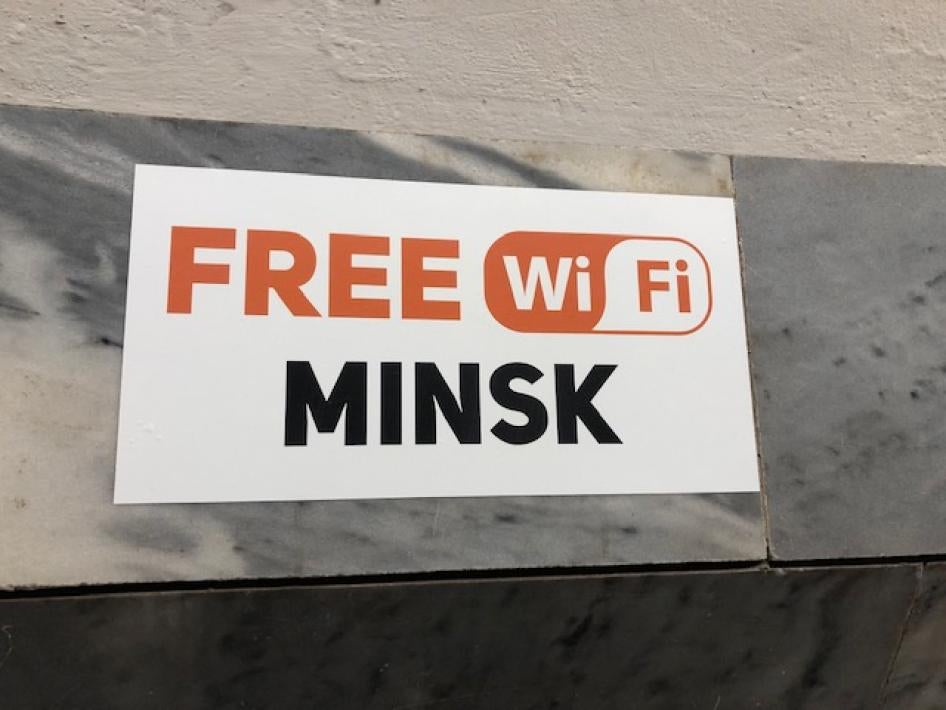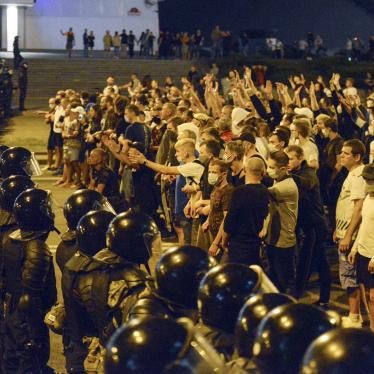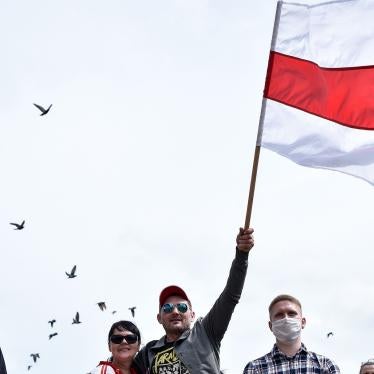My internet went out when I crossed the border into Belarus on Monday. I was on my way to Minsk to report on the government response to the unprecedented public mobilization following last weekend’s disputed election.
Reports today indicate that 5,000 people have been detained by authorities. Hundreds of demonstrators were beaten by police, and Russian journalists were summarily deported. One protester died from injuries.
“So, what’s up with the election results?” asked the taxi driver who met me as I crossed the border into Belarus from Russia. With no internet, he had no idea the president claimed he won 80 percent of the vote. In Minsk, a dozen trucks full of armed personnel drive past. At the apartment where I stay, I am finally able to get onto Wi-Fi. The issue is more significant than mobile internet being cut off. None of the usual messaging services work without using additional tools to bypass the censorship, so for most in Belarus no secure communications are currently possible.
Access to all independent local sites and many popular external platforms is blocked. In the midst of a popular mobilization, these restrictions undoubtedly seek to have a chilling effect on people’s ability to organize and demonstrate. They also make it much harder to publicize information and images about abuse.
Downloading censorship circumvention tools on mobile devices is especially difficult because the government appears to be blocking the Apple Store and Google Play. Many of those who do have access to commonly used censorship circumvention tools, such as VPNs, are finding these technologies are also being blocked. As of now, activists say that “Connection is getting worse while the crowds are getting bigger.”
On Monday, incumbent Alexander Lukashenka claimed the internet outages were caused by a foreign cyberattack. But the internet disruptions were documented and technical experts attribute it to government interference. One expert clearly said that the most likely reason for the network outages were the actions of the state-owned Beltelecom. When I tried sites like CNN, Al Jazeera, and Fox News, and key Belarusian independent news outlets, they were all blocked.
At the end of 2019, my colleagues warned about keeping watch on who’s shutting down the internet. In a year where almost nothing else has been predictable, it seems like government manipulation of the internet is a constant. That’s why a coalition of NGOs against internet shutdowns wrote to Lukashenko urging him to #KeepItOn.










